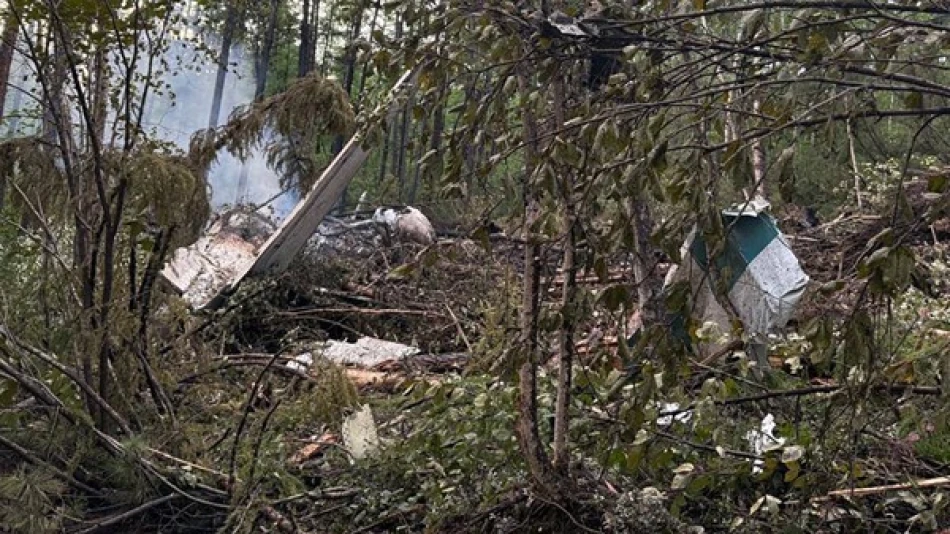
Black Boxes Recovered from Ill-Fated Russian Plane Crash
Russian Aviation Safety Under Scrutiny as Black Boxes Recovered from Deadly Regional Crash
Russian investigators have recovered both black boxes from an Antonov AN-24 aircraft that crashed in the country's far east, killing all 48 people aboard. The discovery comes as authorities launch a comprehensive safety investigation into regional airline operations, highlighting ongoing concerns about Russia's aging fleet and maintenance standards under international sanctions.
Critical Evidence Heads to Moscow
The flight data and cockpit voice recorders are being transported to Moscow for analysis, marking a crucial step in determining what caused the twin-engine turboprop to crash during a routine domestic flight. The aircraft was operating a scheduled service from Khabarovsk via Blagoveshchensk to the small town of Tynda in the Amur region when it went down Thursday.
Significantly, authorities confirmed that the flight crew reported no technical problems or distress signals before the crash occurred, deepening the mystery surrounding the incident and placing greater importance on the black box data.
Aging Soviet-Era Aircraft Raises Safety Questions
The crashed Antonov AN-24, a Soviet-designed aircraft first introduced in the 1960s, represents the backbone of Russia's regional aviation network. These workhorses continue operating across the country's vast territory, often serving remote communities with limited transportation alternatives.
However, the incident spotlights growing concerns about fleet modernization and maintenance capabilities. Western sanctions imposed following Russia's actions in Ukraine have severely restricted access to modern aircraft, spare parts, and technical support from major manufacturers like Boeing and Airbus.
Maintenance and Parts Shortages
Industry experts have warned that sanctions are forcing Russian airlines to cannibalize aircraft for spare parts and seek alternative suppliers, potentially compromising safety standards. Unlike major carriers that primarily operate international routes, regional airlines like Angara Airlines face particular challenges maintaining older aircraft that require specialized components.
Regulatory Response and Investigation Scope
Russian prosecutors have launched a comprehensive investigation into Angara Airlines' safety procedures, signaling authorities are taking the incident seriously. This probe will likely examine maintenance records, pilot training protocols, and operational procedures – areas that have come under increased scrutiny as Russia's aviation sector adapts to isolation from Western suppliers.
The investigation's findings could have broader implications for Russia's regional aviation sector, potentially leading to stricter oversight or operational changes for airlines operating Soviet-era aircraft.
Strategic Implications for Russian Aviation
This crash occurs at a critical juncture for Russian aviation. The country has been working to develop domestic aircraft manufacturing capabilities and strengthen ties with Chinese suppliers to reduce dependence on Western technology. However, the transition period leaves operators vulnerable, particularly those serving remote regions where alternative transportation options are limited.
The incident also underscores the strategic importance of maintaining robust domestic aviation networks for a country spanning eleven time zones. Any systemic safety issues could severely impact connectivity to remote regions, affecting both economic activity and emergency services access.
As investigators analyze the black box data in the coming weeks, their findings will likely influence not only regulatory oversight but also investment priorities in Russia's efforts to modernize its aviation infrastructure under challenging international circumstances.
Most Viewed News

 Layla Al Mansoori
Layla Al Mansoori






